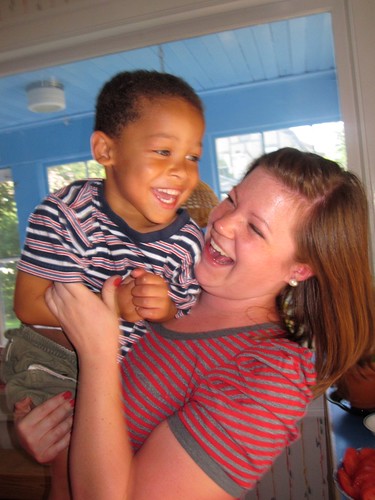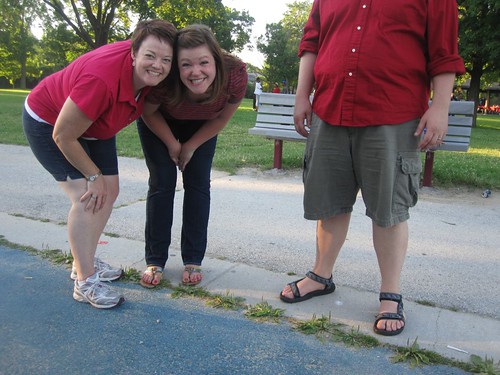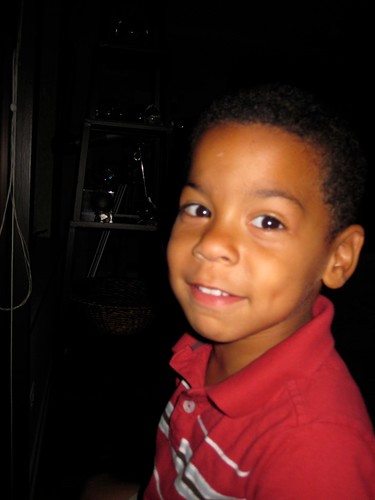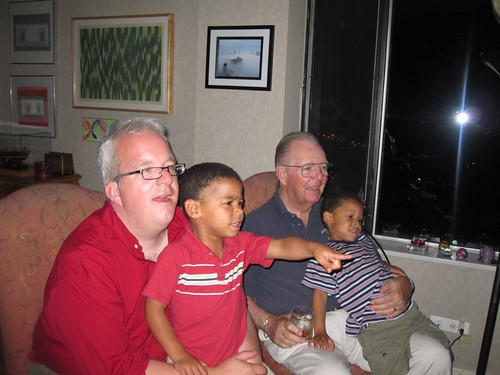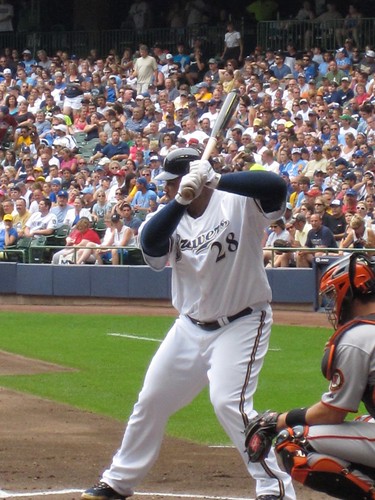 David Mitchell -- The Thousand Autumns of Jacob De Zoet. Mitchell's Cloud Atlas was such a great book that this new novel seems like a follow-up, despite his Black Swan Green falling between the two. There's so much to like about Mitchell, chiefly the forcefulness of his imagination and the fluidity of his writing. The setting here, of a Dutch trading post in late 18th/early 19th century Japan, feels and reads more like science fiction than history, and the complex system of trading commerce (as well as the ruses that prey on or subvert it) is strangely and delightfully interesting to see unfold. For fresh dialogue and characters, I don't know if there's anyone better out there writing in English.
David Mitchell -- The Thousand Autumns of Jacob De Zoet. Mitchell's Cloud Atlas was such a great book that this new novel seems like a follow-up, despite his Black Swan Green falling between the two. There's so much to like about Mitchell, chiefly the forcefulness of his imagination and the fluidity of his writing. The setting here, of a Dutch trading post in late 18th/early 19th century Japan, feels and reads more like science fiction than history, and the complex system of trading commerce (as well as the ruses that prey on or subvert it) is strangely and delightfully interesting to see unfold. For fresh dialogue and characters, I don't know if there's anyone better out there writing in English.I wouldn't necessarily put this book on a reading list above either Cloud Atlas or Black Swan Green, largely due to the somewhat far-fetched unspeakable secret at the heart of the monastery that is the focus of the too-long middle section of the book, but I found the first and later sections completely absorbing. It seems David Mitchell is like pizza -- even when it isn't perfect, it's still pretty good.
------
 Michael Chabon -- The Final Solution. This is a short novel -- I do not cotton to the word "novella" -- set in England during the Second World War, and featuring the last case (or a last case, anyway) of a certain world-famous Victorian detective. Unnamed in the text, and so unnamed here, this particular bee-keeping retiree would have been at least in his very upper eighties at the time this story takes place, and Chabon paints this character with the aches and resignations of age and faded glory.
Michael Chabon -- The Final Solution. This is a short novel -- I do not cotton to the word "novella" -- set in England during the Second World War, and featuring the last case (or a last case, anyway) of a certain world-famous Victorian detective. Unnamed in the text, and so unnamed here, this particular bee-keeping retiree would have been at least in his very upper eighties at the time this story takes place, and Chabon paints this character with the aches and resignations of age and faded glory.The central mystery revolves around sequences of German numbers recited by the parrot on the cover there, with certain nefarious folks speculating that this may be German army codes or account numbers to Swiss banks. Neither the detective or any of the other characters ever make out what the numbers actually refer to, but the answer can be pretty well sussed by the book's title. It's a well-done period pastiche, not nearly as weighty as its subject matter, and the juxtaposition of the sharp deduction skills and quaint Victoriana of the detective against the named and unnamed horrors of WWII is handled well and subtly.
------
 Steven Amsterdam -- Things We Didn't See Coming. Mid-way through reading this collection of closely linked short stories, I mentioned to a few people that it could be thought of mathematically as Denis Johnson's Jesus' Son + Cormac McCarthy's The Road. The later stories in the book, however, cause me to temper that analogy; it needs to be divided by something, because "plus" perhaps suggests a level of quality of the two other books that Things We Didn't See Coming doesn't quite attain. So maybe its better represented as (Jesus' Son + The Road)/The Bachman Books.
Steven Amsterdam -- Things We Didn't See Coming. Mid-way through reading this collection of closely linked short stories, I mentioned to a few people that it could be thought of mathematically as Denis Johnson's Jesus' Son + Cormac McCarthy's The Road. The later stories in the book, however, cause me to temper that analogy; it needs to be divided by something, because "plus" perhaps suggests a level of quality of the two other books that Things We Didn't See Coming doesn't quite attain. So maybe its better represented as (Jesus' Son + The Road)/The Bachman Books.At any rate, this is a set of stories from the point of view of one particular character who traverses from contemporary America into an ever-increasingly grim dystopia. The first story is set on New Year's Eve 1999 and concerns the narrator's fathers concern and preparation regarding Y2K, which may seem like distant and unattended fears to us but lead into the disasters (floods, draught, urban collapse, eco-terrorism, widespread cancer) of later stories. The second story, in which the right cocktail of pills brings a non-responsive Alzheimer's patient back to brief but vibrant life, is particularly affecting.
Jesus' Son is a clear model, as each story reflects but does not necessarily refer to the others, and the stories try to balance emotional distance or disengagement from events with a more generous and heartfelt response to humanity. Amsterdam's final story reaches for but doesn't quite attain the sense of possisble redemption that makes Jesus' Son's final story such a beautiful heartbreaker, but its a noble attempt. Overall (excepting one middle-of-the-book story concerning a sexed-up foxy senator of the future) a fun and diverting read.
------
 Greil Marcus -- Like a Rolling Stone: Bob Dylan at the Crossroads. I have a complicated reader-author relationship with Greil Marcus. He's clearly really smart, in a culturally-plugged-in kind-of-way, and he seems to find important a lot of the stuff I find important, but sometimes he comes off as a little bit snooty or a bit inside-baseball, someone who's liable to tell you that the best of all possible Bob Dylan performances can be found on a bootleg tape inaccessible to anyone but Greil Marcus. Also, though I imagine its really hard to write about music (cf. "dancing about architecture"), I sometimes find his writing a bit inscrutable. Late in this book, which is a close reading of the creation and importance of one particular Bob Dylan song, Marcus notes that really only two songs follow in its thematic footsteps. One is "Highlands," off of Dylan's 1997 Time Out of Mind, and the other is "Go West," a Pet Shop Boys cover of a late seventies Village People disco hit. Okay, but whaat?
Greil Marcus -- Like a Rolling Stone: Bob Dylan at the Crossroads. I have a complicated reader-author relationship with Greil Marcus. He's clearly really smart, in a culturally-plugged-in kind-of-way, and he seems to find important a lot of the stuff I find important, but sometimes he comes off as a little bit snooty or a bit inside-baseball, someone who's liable to tell you that the best of all possible Bob Dylan performances can be found on a bootleg tape inaccessible to anyone but Greil Marcus. Also, though I imagine its really hard to write about music (cf. "dancing about architecture"), I sometimes find his writing a bit inscrutable. Late in this book, which is a close reading of the creation and importance of one particular Bob Dylan song, Marcus notes that really only two songs follow in its thematic footsteps. One is "Highlands," off of Dylan's 1997 Time Out of Mind, and the other is "Go West," a Pet Shop Boys cover of a late seventies Village People disco hit. Okay, but whaat?







